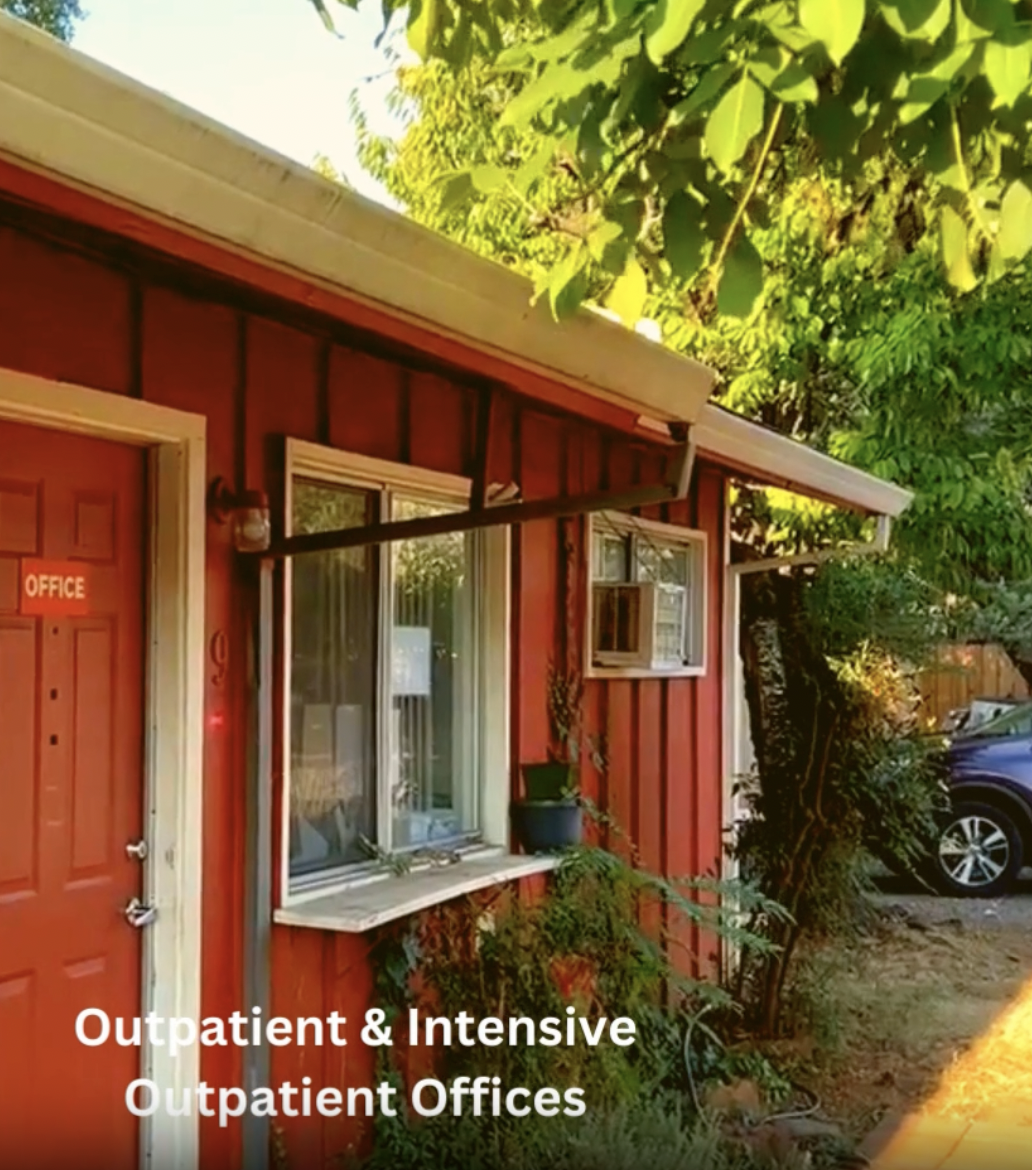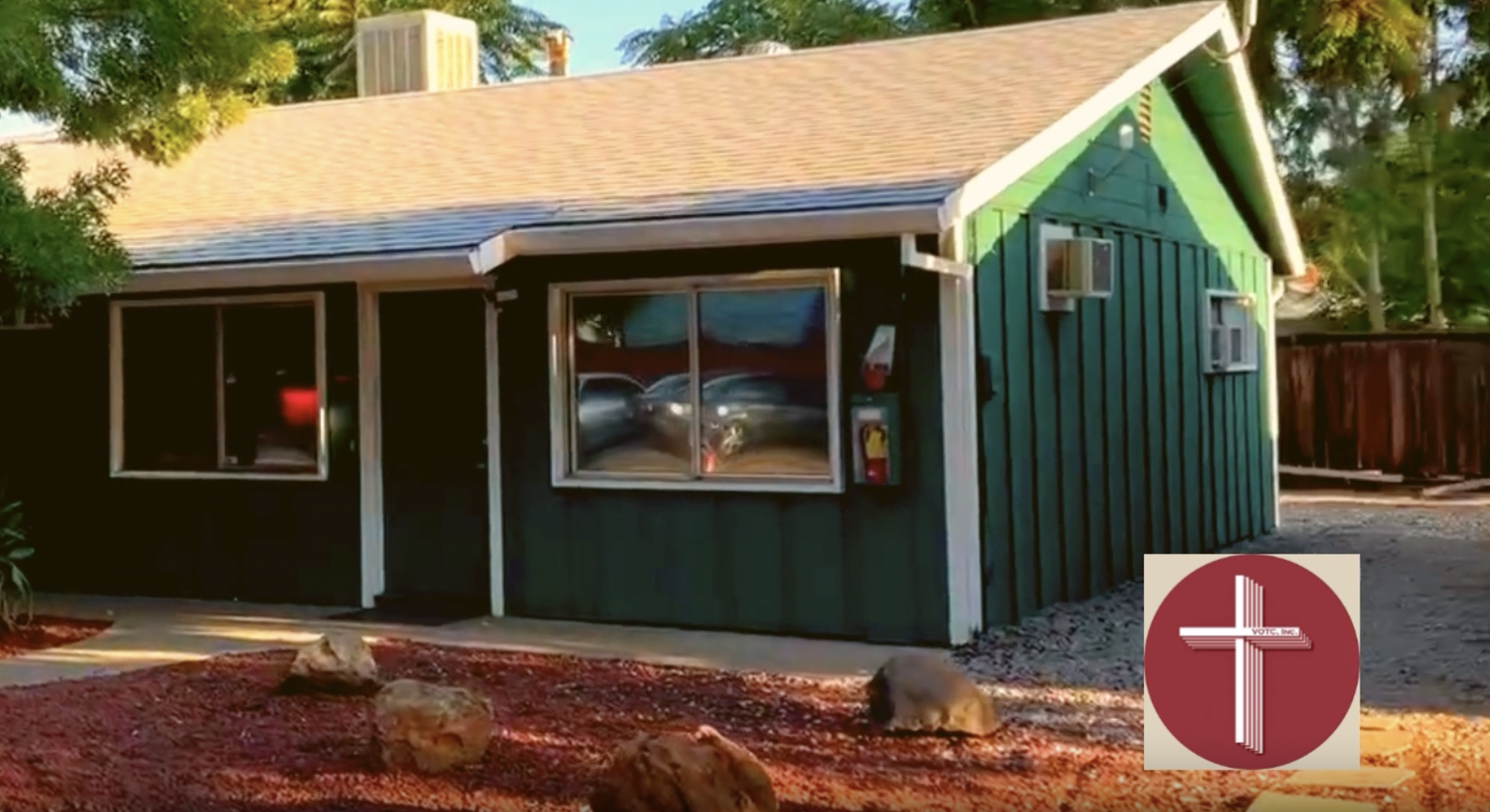Visions of the Cross
Overview
Visions of the Cross is a distinguished drug and alcohol addiction recovery center located in Redding, California. Employing a social model, the center offers multiple levels of care through a variety of treatment methods, all within residential facilities equipped with modern amenities.
Visions of the Cross adopts a holistic approach to treatment and therapy, aiming to uncover the underlying sources of addictive behaviors. This comprehensive method is designed to empower each client to discover their purpose, thereby establishing a personal foundation that supports a life free from addiction.
By addressing the multifaceted nature of addiction and focusing on the whole person, Visions of the Cross provides a supportive and effective environment for lasting recovery.
Inpatient care at Visions of the Cross provides clients with a safe and stable environment where they receive 24-hour care while undergoing addiction treatment. This option is particularly beneficial for individuals with severe addiction symptoms or those coming from unstable living situations. Clients are provided with their own rooms and have their daily needs attended to throughout their stay, the duration of which is tailored to their specific requirements.
Treatment at Visions of the Cross is a collaborative effort between clients and their care team. Together, they develop a personalized treatment plan that best accommodates and addresses the client's needs. Available treatments may include individual counseling, life skills training, educational opportunities, medication monitoring, case management, comprehensive assessments, and discharge planning.
This individualized and comprehensive approach ensures that each client receives the most effective care and support, promoting a successful and lasting recovery.
The day program at Visions of the Cross offers the same comprehensive types of care as the inpatient program without requiring clients to reside at the facility. Clients regularly attend the facility to receive treatment and participate in groups focused on continuing and supporting their recovery process. This outpatient program is ideal for individuals whose symptoms do not require close monitoring, who do not need detoxification, and/or who come from stable living situations.
The outpatient care schedule is flexible, with sessions available during both day and evening hours to accommodate various needs. Additionally, both the inpatient and outpatient programs incorporate a family component, inviting family members to engage in classes and therapy to better understand addiction and recovery.
By offering both inpatient and outpatient options, Visions of the Cross ensures that clients receive the most suitable level of care to support their journey towards lasting recovery.
Visions of the Cross operates several transitional care houses for clients who have completed a treatment program but lack a stable living environment to return to. These transitional houses provide a structured and supportive setting, ensuring continuity of care as clients transition back into daily life.
Residents in these houses have access to case managers and other support team members who help them stay on track toward achieving their goals. This additional layer of support is crucial in maintaining the progress made during treatment and fostering long-term recovery and stability.
By offering transitional care housing, Visions of the Cross extends its commitment to holistic recovery, providing clients with the necessary resources and support to build a solid foundation for a substance-free life.
Visions of the Cross at a Glance
Payment Options
- Access to Recovery (ATR) Voucher
- Medicaid
- Private health insurance
- Cash or self-payment
- State-financed health insurance plan other than Medicaid
Assessments
- Comprehensive mental health assessment
- Comprehensive substance use assessment
Age Groups
- Adults
- Young adults
Operation
- Treatment duration
- Private for-profit organization
Treatment At Visions of the Cross

Conditions Treated
Mental health treatment:
Mental health services are essential during treatment for drug and alcohol addiction, whether you receive treatment in an inpatient or outpatient setting. While receiving inpatient care, you can expect to have round-the-clock access to mental health therapists and medical staff. Additionally, you will likely receive a number of different therapies and mental health options like individual and group counseling, addiction and relapse prevention education, and coping skills training.
Alcoholism:
Alcohol addiction is when a person becomes physically and mentally dependent on alcohol, leading to mood swings, impulsive actions, intense cravings, and withdrawal symptoms. Treatment includes supervised detox, therapy, and support groups. It's important to note that rehabilitation doesn't "cure" alcoholism, but it helps individuals better manage their addiction, regain their ability to function in daily life, and improve their overall well-being.
Opioid Addiction:
Opioid rehabilitation centers are dedicated to assisting individuals on the path to recovery from opioid addiction. They provide specialized care for those struggling with addiction to substances like heroin and prescription opioids such as oxycodone. These facilities offer a comprehensive approach, including medical detoxification, ongoing medical assistance (including medication-based treatment), and therapeutic support to address the root causes of addiction.
Substance use treatment:
Substance use rehabilitation represents a holistic treatment strategy tailored to aid individuals grappling with drug or alcohol addiction. This comprehensive rehabilitation method encompasses two key aspects: first, addressing the physical dependency, often commencing with detoxification, and second, tackling the psychological triggers through a range of therapeutic techniques. The ultimate aim is to empower individuals to attain and sustain sobriety while providing them with the necessary skills and coping mechanisms to successfully reintegrate into society and lead a life free from substance abuse.
Co-occurring Disorders:
Dual-diagnosis rehabs are usually the appropriate solution to treat co-occurring mental health and substance abuse disorders. These facilities typically employ medical and behavioral experts who use a range of interventions, together with the right healing environment, for you to achieve and sustain long-term recovery. Treatment usually includes evidence-based therapies (like cognitive behavioral therapy), recovery support meetings, 12-step facilitation, psychoeducation, skills training, and group therapy.

Levels Of Care
Detoxification:
Detoxification, often shortened to detox, is like giving the body a fresh start by getting rid of harmful substances like drugs or alcohol someone may have taken. When a person stops taking these substances, they might feel sick or uncomfortable as their body adjusts to the change. Detox helps ease these uncomfortable feelings while making sure the harmful substances are removed from the body in a safe way. This process helps prevent any additional harm caused by the drugs or alcohol.
Halfway house:
Sober living homes or halfway houses, offer secure, substance-free, and supportive living arrangements for individuals in the process of recovering from substance abuse. These facilities are particularly beneficial for individuals who have recently completed inpatient or outpatient treatment programs. Halfway houses are carefully monitored environments with established guidelines aimed at fostering and maintaining sobriety, including curfews, shared household responsibilities, and therapeutic gatherings. Residents often receive training in essential life skills and coping strategies to facilitate a smoother transition into mainstream society. Additionally, it cultivates a strong sense of community that fosters deep and enduring connections with fellow individuals in recovery, promoting a fresh and healthy lifestyle.
Outpatient:
Outpatient programs cater to individuals who are in good medical condition and are not at a heightened risk of relapse, including those who have successfully finished their inpatient treatment. These programs usually build upon clients' existing treatment strategies, providing ongoing addiction counseling and educational support for recovery. Individuals who enter outpatient care right after detoxification may also undergo medical and psychological evaluations, followed by the creation of personalized treatment plans. Most outpatient rehabilitation centers offer various levels of care tailored to meet each client's specific needs.
Hospital inpatient treatment:
Residential treatment programs provide housing, meals, and substance abuse treatment, offering patients an environment dedicated entirely to their recovery, distinct from their everyday life. While some rehab facilities concentrate on short-term stays lasting a few days to a couple of weeks, others emphasize long-term care spanning several weeks to months. Many centers offer both, customizing the treatment based on each patient's unique needs.

Treatment Modalities
12-step facilitation:
Recovery models grounded in 12-step programs prominently incorporate peer coaching, strongly emphasizing personal growth as the pathway to enduring sobriety. Regular participation in 12-step meetings, known for their anonymity, cost-free access, and daily availability, is encouraged. The 12 steps of recovery, anchored in spiritual principles, guide participants in unraveling the core issues of their addiction, taking accountability for their decisions, and coming to terms with aspects beyond their control. Chosen by the individuals themselves, sponsors offer personalized one-on-one mentorship, aiding in navigating through the recovery journey.
Individual psychotherapy:
Individual therapy, often referred to as psychotherapy or counseling, is a one-on-one therapeutic interaction between a trained therapist and a client. It provides a confidential space for individuals to explore their feelings, beliefs, and behaviors, working through challenging memories, experiences, or emotions. The therapist facilitates self-awareness, promotes personal growth and insight, and offers coping strategies to manage specific issues like stress, anxiety, depression, and other life challenges. The ultimate goal is to improve the individual's mental well-being and enhance their overall quality of life.
Group counseling:
Group therapy entails therapeutic sessions conducted in a collective setting rather than one-on-one. It encompasses various modalities, from support groups and experiential therapy to psycho-education and beyond. The approach focuses on treatment and emphasizes the dynamic interactions and shared experiences among group members.
Life Skills:
Life skills training encompasses a comprehensive set of abilities essential for individuals to thrive in society. These encompass time management, career guidance, financial acumen, and effective communication. In the context of addiction recovery, true success goes beyond mere abstinence; it's about flourishing. Life skills instruction equips individuals with the practical tools needed to navigate society successfully, paving the way for a fulfilling life and, consequently, lasting sobriety.
Cognitive Behavioral Therapy:
Cognitive Behavioral Therapy (CBT) is a evidence-based psychological treatment that focuses on identifying and challenging negative thought patterns and behaviors. It aims to develop coping strategies and promote healthier thinking to address a variety of mental health issues, such as depression, anxiety, and stress. CBT is typically short-term and goal-oriented, emphasizing the role of thought processes in influencing emotions and behaviors.
Motivational Interviewing:
Motivational Interviewing (MI) in addiction treatment is a client-centered counseling approach designed to enhance an individual's intrinsic motivation to change. By addressing ambivalence and tapping into personal values, MI fosters meaningful conversations about substance use and promotes commitment to recovery-focused goals.
Trauma-related counseling:
Trauma therapy addresses the deep-seated emotional and psychological wounds often linked with substance abuse disorders. Recognizing that traumatic experiences can be a root cause or a significant contributing factor to substance addiction, this therapeutic approach seeks to help individuals understand, process, and heal from their traumas. Doing so fosters emotional healing and bolsters the individual's chances of long-term recovery from addiction. Integrating trauma-informed care into addiction treatment ensures a comprehensive approach that addresses substance abuse's symptoms and underlying causes.
Recreational Therapy:
Recreational therapy, within the realm of behavioral health, involves using various recreational activities and interventions to support, maintain, or improve individuals' psychological, emotional, and social well-being. Using art, music, sports, games, and nature excursions, recreational therapists reduce stress, enhance mood, promote interpersonal skills, and improve overall mental health. Tailored to the individual's needs and interests, this therapeutic approach provides an engaging means to foster resilience, self-expression, and personal growth.
Nutrition Therapy:
Nutrition therapy is a tailored dietary approach to managing and preventing certain medical conditions. Administered by registered dietitians or nutrition professionals, it involves the assessment of an individual's nutritional status and the development of personalized nutrition strategies to optimize health and manage specific health concerns.
Religious Programs:
Religion used during treatment means a specific religion is used as the basis for care and treatment at a specific rehab facility or support group. Whether that faith is Christianity, Judaism, Islam, Buddhism, or another religion, it is the central guiding principle behind the care. Counselors, support materials (like books or workbooks), and peers use that faith to support patients in finding their way to recovery. Surrendering to a higher power can be a relief to many patients, and religion can help those in recovery realize they're worthy or love and forgiveness. Connecting with their religion can provide patients a strong foundation for addiction recovery, and inspire comfort, support, and guidance in a deep, meaningful way.
Ancillary Services
Special Programs
- Pregnant/postpartum women
- Clients who have experienced trauma
Contact Information
DISCLAIMER: The facility name, logo and brand are the property and registered trademarks of Visions of the Cross, and are being used for identification and informational purposes only. Use of these names, logos and brands shall not imply endorsement. BetterAddictionCare.com is not affiliated with or sponsored by Visions of the Cross.





